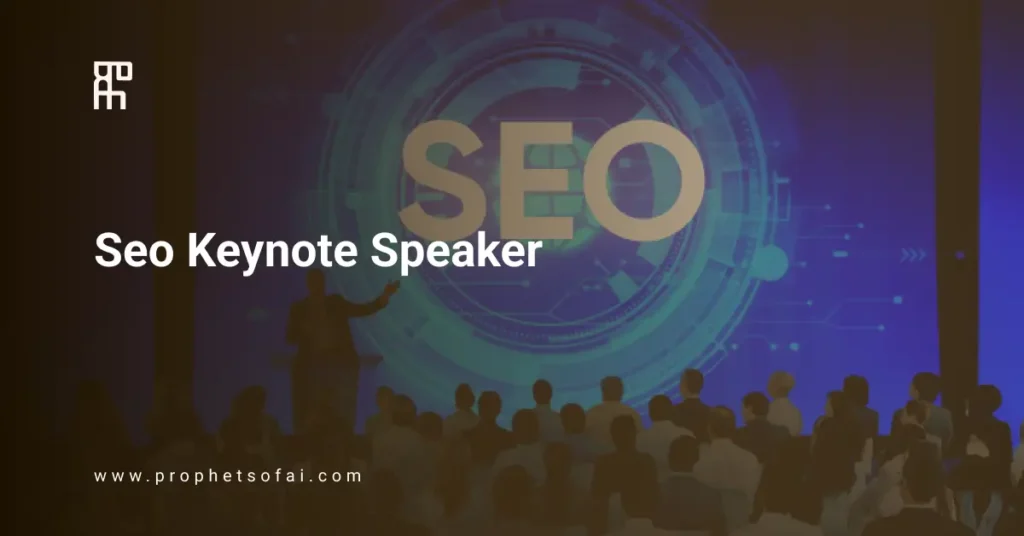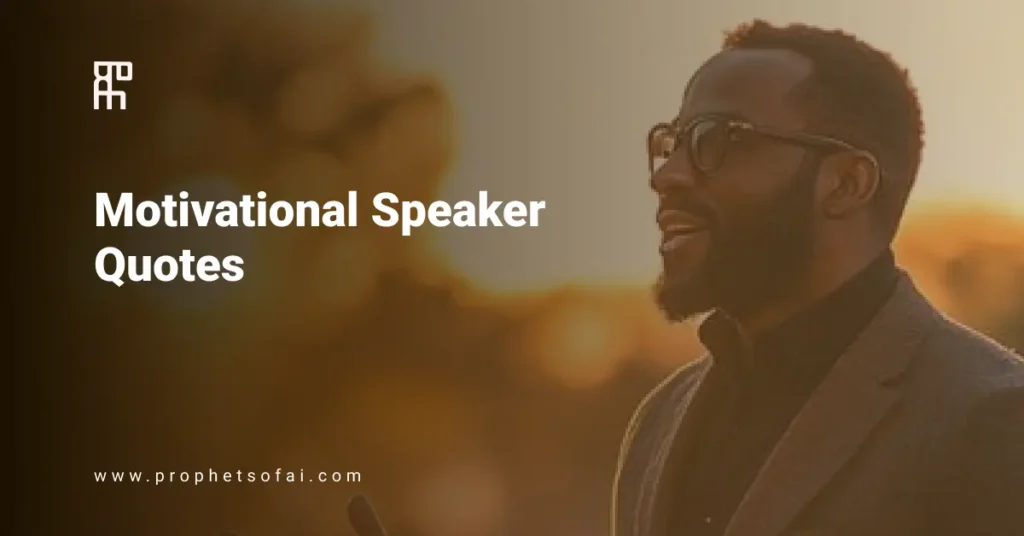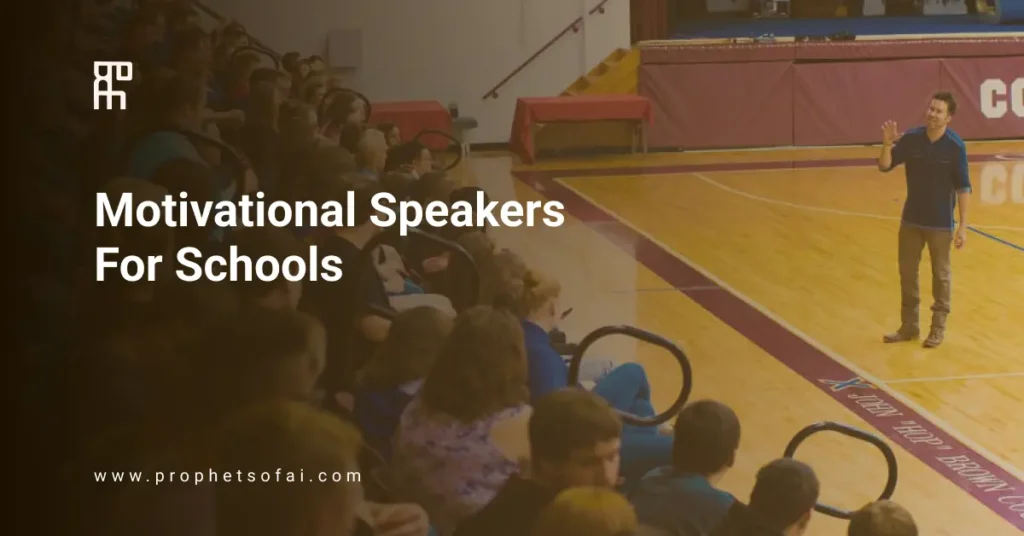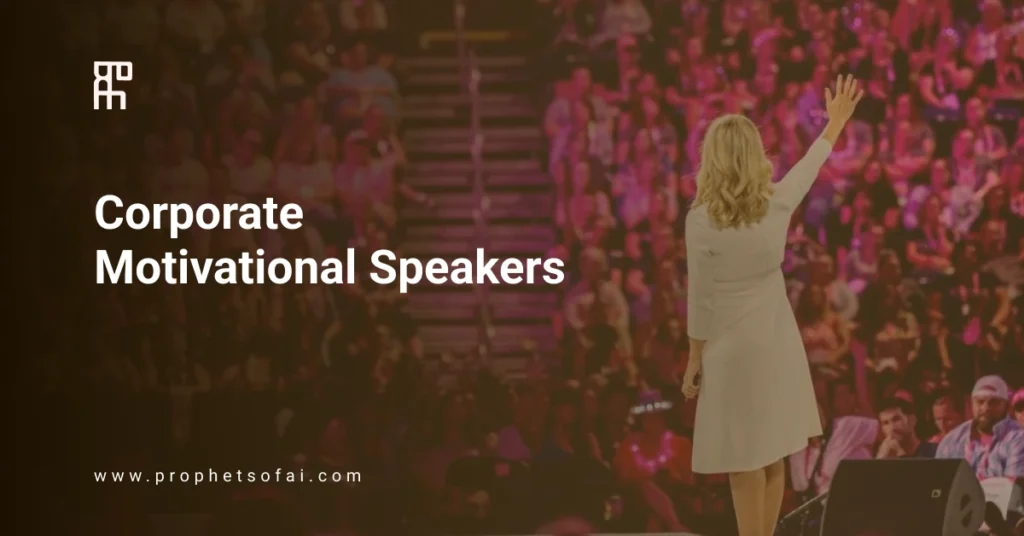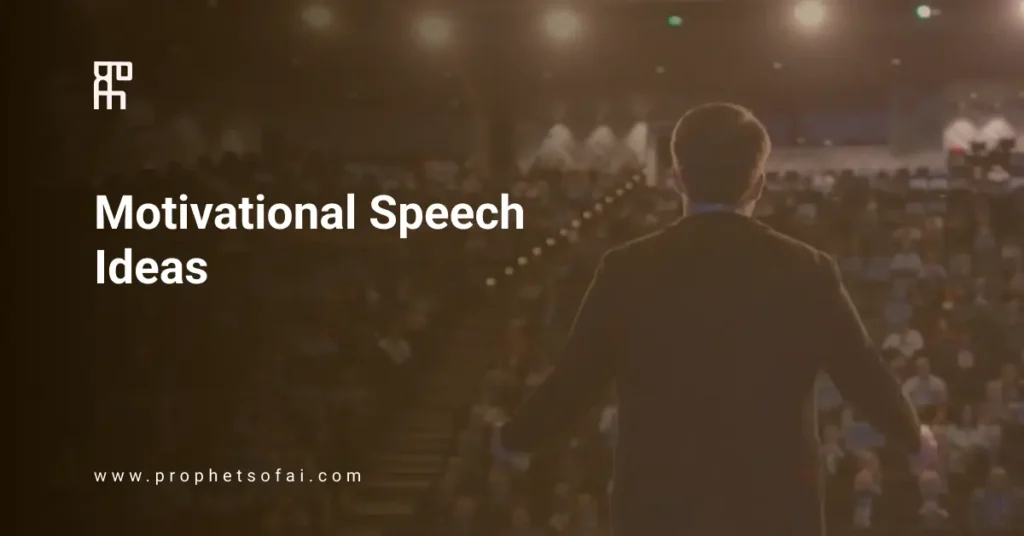Finding the right keynote speaker can make or break your event. The challenge is identifying the perfect match for your audience, objectives, and budget among thousands of options. This guide covers the complete process—from defining requirements to signing contracts. Whether you work with a speakers bureau like Prophets of AI or search independently, these strategies ensure success.
Step 1: Define Your Event Requirements Before Starting Your Search
Before searching for speakers, clarify what you need to avoid wasting time on unsuitable candidates.
Define your event goals (inspire, educate, motivate) and audience demographics (industry, seniority, interests). Determine your event format (in-person, virtual, hybrid) and expected attendance—speakers who excel with 50 people may struggle with 500. Set your event date and start searching 6-12 months in advance since top speakers book early. Establish your event theme and key messages—speakers should reinforce, not dictate, your purpose. Finally, set a realistic budget range including fees, travel, and accommodations. Before diving into your search, it’s helpful to understand what is a keynote speaker and their role in your event.
Step 2: Establish Your Speaker Budget
Understanding pricing helps you target appropriate candidates efficiently.
Entry-level speakers ($1,500-$5,000) include emerging experts and local leaders. Mid-range professionals ($5,000-$15,000) are established industry leaders with proven track records. Established experts ($15,000-$50,000) are recognized thought leaders and bestselling authors. Celebrity speakers ($50,000-$300,000+) are household names who drive ticket sales.
Additional costs include travel expenses, accommodations, per diem allowances, technical equipment, and pre/post-event services. Budget-saving strategies: Local speakers eliminate travel costs, virtual presentations cost 20-50% less, and emerging speakers deliver quality at lower fees.
Step 3: Understand Different Types of Speakers
Keynote speakers deliver 45-90 minute presentations that set your event’s tone and inspire audiences. Guest speakers provide deep expertise on specific topics for breakout sessions. Motivational speakers focus on inspiration and mindset shifts. Industry experts bring technical knowledge and data-driven insights. Celebrity speakers attract attendees through name recognition. Workshop facilitators deliver interactive, hands-on learning.
Choose based on goals: keynotes for inspiration, experts for education, motivational speakers for energy, facilitators for skill development. Understanding the differences between a keynote speaker vs guest speaker or keynote speaker vs motivational speaker helps you select the right type for your needs.
Step 4: Seven Methods to Find Potential Speakers
Speaker bureaus like Prophets of AI handle vetting, matching, and logistics—best for efficiency. Online databases (National Speakers Association, SpeakerHub) offer large selections requiring independent vetting. Industry networks provide trusted referrals from colleagues and associations. Social media (YouTube, LinkedIn, TED) offers free presentation previews. Industry publications feature bestselling authors and conference presenters. Call for proposals attracts emerging talent at lower costs. Past event connections include attendees or employees with relevant expertise.
Combine multiple methods for best results.
Step 5: Create Your Speaker Shortlist
Narrow candidates to 3-5 choices using systematic criteria: relevance to theme, experience with similar audiences, speaking style and energy, availability, budget alignment, and customization willingness.
Gather full-length videos, professional bios, testimonials, and fee information. Create a comparison spreadsheet. Having multiple strong candidates provides backup options if negotiations fail.
Step 6: Conduct Thorough Speaker Vetting
Watch full presentations, not highlight reels, to assess audience engagement, content depth, and Q&A handling. Check references from past clients about professionalism, preparation process, and whether they’d book again. Review online presence including website quality, social media activity, and published content. What makes a good keynote speaker? Thorough vetting reveals the qualities that separate exceptional speakers from mediocre ones.
Red flags to avoid: Reluctance to provide references, no full-length video samples, poor communication, resistance to customization, outdated testimonials, and unprofessional online presence.
Best practice: Attend a live event if possible or schedule video calls with top candidates.
Step 7: Interview and Evaluate Finalists
Ask key questions: How will you customize content for our audience? What’s your preparation process? What are your complete technical requirements? What’s included in your fee versus additional costs? What pre-event and post-event support do you offer?
Assess fit: Evaluate communication style, enthusiasm for your event, flexibility, and chemistry with your team. Discuss logistics including travel preferences, preparation timeline, and contract terms.
Professional speakers answer confidently with specific details. Vague responses signal problems.
Step 8: Negotiate and Finalize the Contract
Be transparent about budget constraints and discuss value-adds like promotional support or extended Q&A sessions. Consider package deals combining workshops with keynotes, or explore virtual versus in-person pricing differences.
Essential contract elements include speaker fee and payment schedule (typically 50% deposit, 50% upon completion), travel and accommodation terms, cancellation and rescheduling policies, force majeure clauses, recording and intellectual property rights, pre-event and post-event commitments, technical requirements, and promotional material permissions.
Secure contracts 4-6 months before your event to lock in availability and allow adequate preparation time.
Step 9: Plan Pre-Event Collaboration
Schedule preparation calls at 6-8 weeks (initial briefing), 3-4 weeks (mid-point check), and 1-2 weeks (final details) before the event. Share detailed audience demographics, event schedule, key stakeholders, organizational challenges, and success metrics.
Request promotional support through social media announcements, pre-recorded videos, or blog posts. Coordinate technical requirements by confirming equipment availability, scheduling sound checks, and preparing backup plans.
Common Mistakes to Avoid
- Booking too late – Top speakers book 6-12 months ahead. Last-minute searches limit options and increase costs.
- Choosing based solely on popularity – Celebrity status doesn’t guarantee relevance. Fit with audience and goals matters more than fame.
- Skipping the vetting process – Never assume credentials equal presentation skills. Always check references and watch full presentations.
- Unclear event objectives – Selecting speakers before defining goals lets them dictate your event theme instead of supporting it.
- Hidden cost surprises – Clarify what’s included in fees upfront. Travel, accommodations, and additional services add up quickly.
- Poor communication – Insufficient briefing about audience and goals leads to generic presentations that miss the mark.
- No backup plan – Always have contingency clauses for speaker cancellations and force majeure situations in contracts.
Quick Timeline: Speaker Search Process
- 6-12 months before: Define requirements, set budget, begin searching and building shortlist.
- 4-6 months before: Conduct interviews, check references, negotiate terms, and finalize contract.
- 6-8 weeks before: First preparation call sharing detailed event information and audience insights.
- 3-4 weeks before: Mid-point check-in confirming logistics and content customization.
- 1-2 weeks before: Final details, technical rehearsal, and last-minute adjustments.
- Day of event: Provide clear schedule, ensure technical setup is complete, support speaker execution.
- Post-event: Collect feedback, maintain relationship for future opportunities.
Conclusion
Finding the right keynote speaker requires strategic planning, thorough vetting, and clear communication. Start early with well-defined objectives, use multiple search methods, and invest time in proper evaluation to avoid costly mistakes. The right speaker delivers lasting value that extends far beyond your event, creating memorable experiences and actionable takeaways for your audience.
Prophets of AI maintains a pre-vetted network of expert keynote speakers specializing in artificial intelligence, technology, and innovation. Our speakers bureau handles the entire process—from matching you with the perfect speaker to managing logistics and negotiations—saving you time while ensuring quality. Visit Prophets of AI to find your ideal keynote speaker today.
